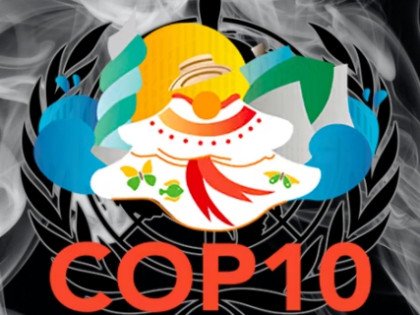“Accusing harm reduction advocates of collusion with big tobacco is not just false, it's a deliberate attempt to divert attention from the real issue: the need for effective strategies to help smokers quit,” says Nancy Loucas, a public health policy expert and passionate advocate for tobacco harm reduction and executive coordinator of CAPHRA.
“We stand for public health, and our goal is to reduce the harm caused by smoking.”
CAPHRA says it strongly condemns the ongoing “gaslighting” of consumer advocacy groups and individuals who support tobacco harm reduction efforts. This misleading narrative, perpetuated by some tobacco control activists, falsely accuses harm reduction advocates of being “in the pocket of big tobacco.”
Nancy Loucas continued: “Such accusations ignore the genuine concern for public health and the well-being of smokers seeking safer alternatives to combustible tobacco. This divisive tactic undermines the potential for constructive dialogue and collaboration in the fight against smoking-related diseases.”
The Coalition of Asia Pacific Tobacco Harm Reduction Advocates points out that recent reports highlight the substantial growth in the illicit tobacco market, which now accounts for about 11% of the total global tobacco trade. The elimination of this illicit trade could increase global tax revenues by an estimated USD 47.4 billion annually.
“However, stringent tobacco control measures, including high taxes and restrictive regulations, have inadvertently contributed to the expansion of the black market. In Australia, for example, the black market for tobacco is thriving, posing significant challenges to public health and safety,” the Coalition adds.
CAPHRA advocates for a shift towards a consumer-centric approach that prioritises harm reduction.
“Smokers are turning to the black market when faced with prohibitive policies and excessive taxation,” Ms Loucas explains.
“We need to provide them with safer, regulated alternatives instead of driving them towards more dangerous, unregulated options.”
The Coalition of Asia Pacific Tobacco Harm Reduction Advocates urges a reformation of tobacco control strategies to include harm reduction as a core principle.
“It's time for the WHO and FCTC to listen to consumers and integrate harm reduction into their policies,” Ms Loucas asserted. “Only then can we tackle both the public health crisis of smoking and the escalating illicit tobacco trade.”
References:
- Coalition of Asia Pacific Tobacco Harm Reduction Advocates - https://caphraorg.net/
Photo Credit:
Photo by Oscar Gray on Unsplash, resized and cropped
Dave Cross
Journalist at POTVDave is a freelance writer; with articles on music, motorbikes, football, pop-science, vaping and tobacco harm reduction in Sounds, Melody Maker, UBG, AWoL, Bike, When Saturday Comes, Vape News Magazine, and syndicated across the Johnston Press group. He was published in an anthology of “Greatest Football Writing”, but still believes this was a mistake. Dave contributes sketches to comedy shows and used to co-host a radio sketch show. He’s worked with numerous start-ups to develop content for their websites.
Join the discussion
Harm Reduction For The Rich
The United Kingdom risks becoming a harm reduction country only for the wealthy, according to Michael Landl of the World Vapers’ Alliance
A Missed Opportunity at COP10
The Smoke Free Sweden movement says that COP10 was a missed opportunity to save millions of lives
COP10: Promote Tobacco Harm Reduction
Experts with Smoke Free Sweden are emphasising the urgent need for a Tobacco Harm Reduction approach at COP10
COP10 is a Threat to Safer Nicotine Products
The EU obscures its position on low-risk alternatives to smoking before the WHO COP10 conference in Panama, starting Monday











